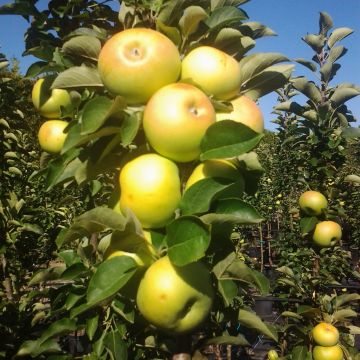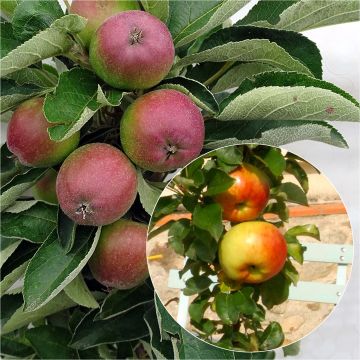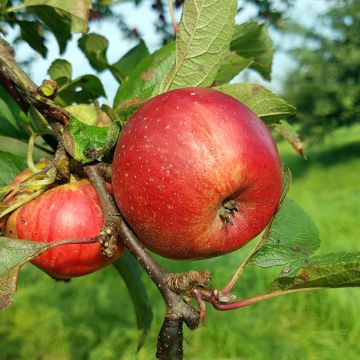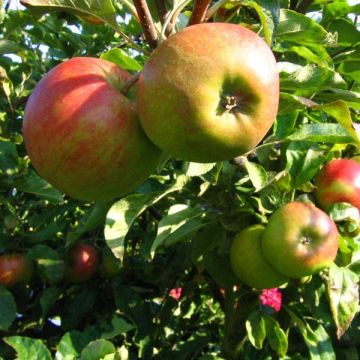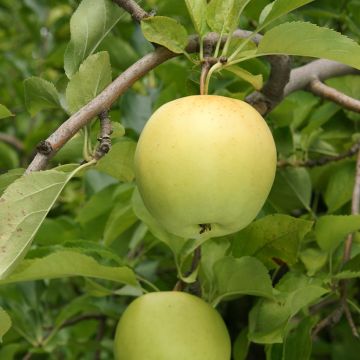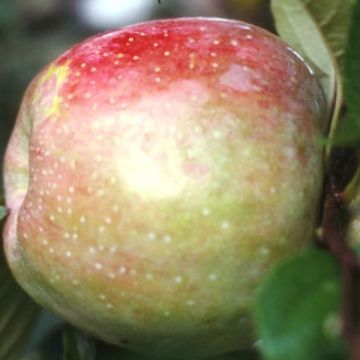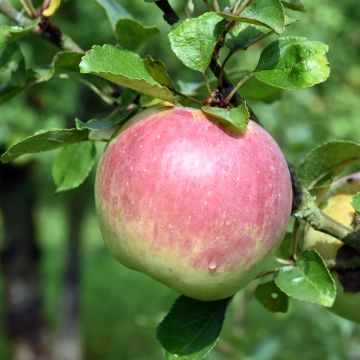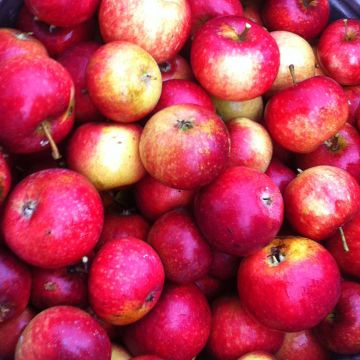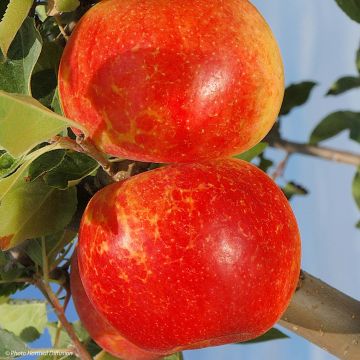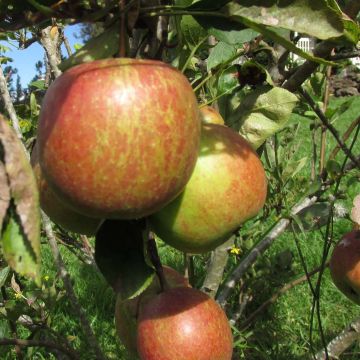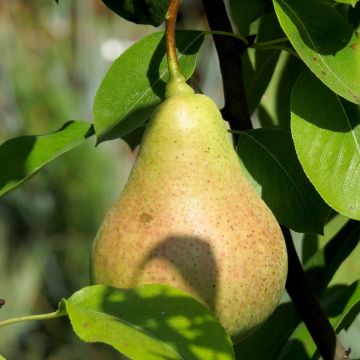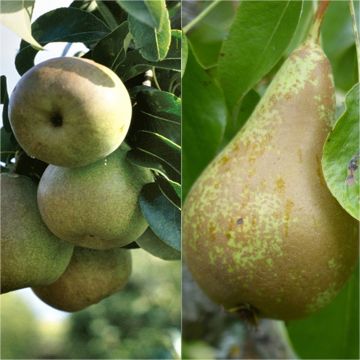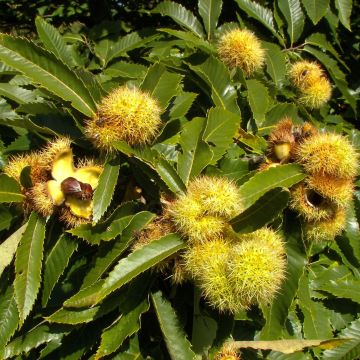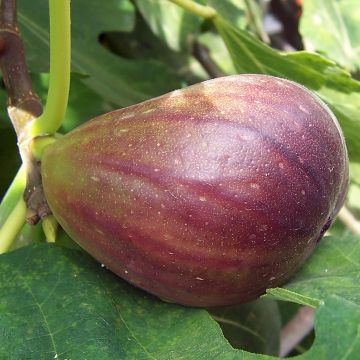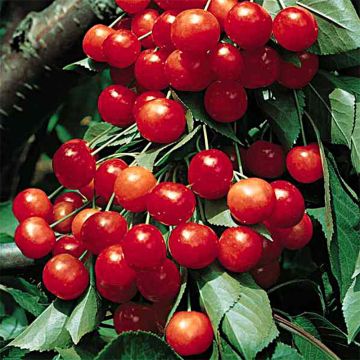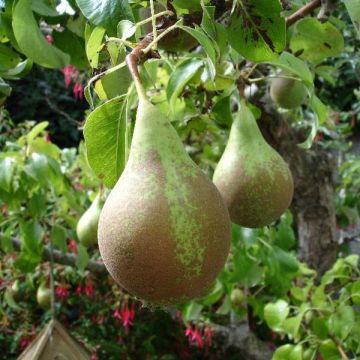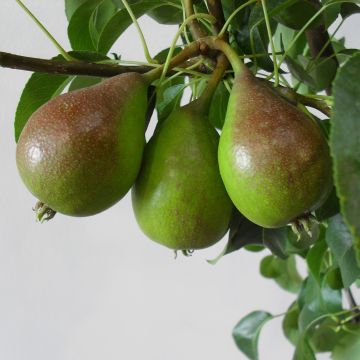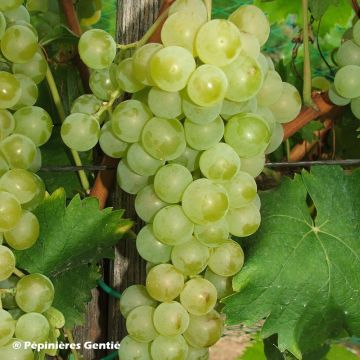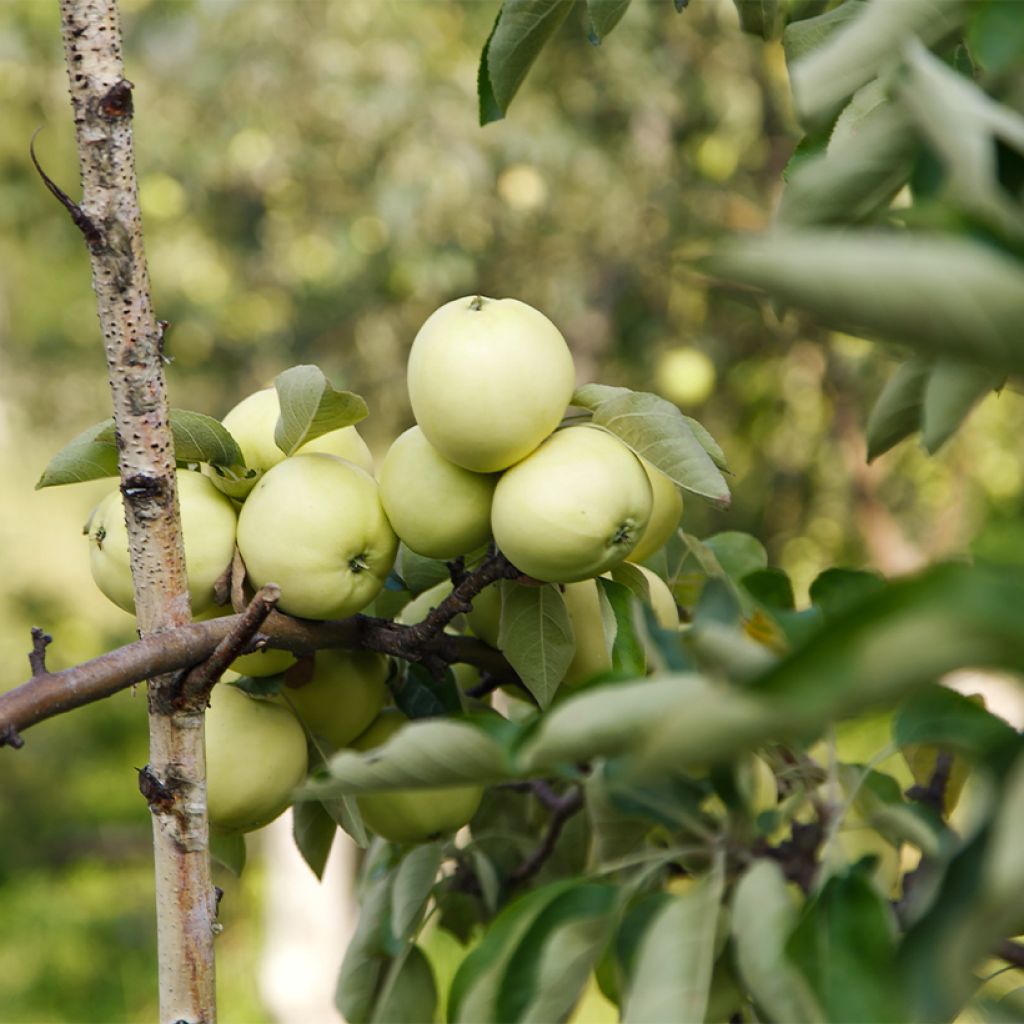

Pommier Transparente Blanche - Pomme des moissons - Saint Anne - Transparente Jaune
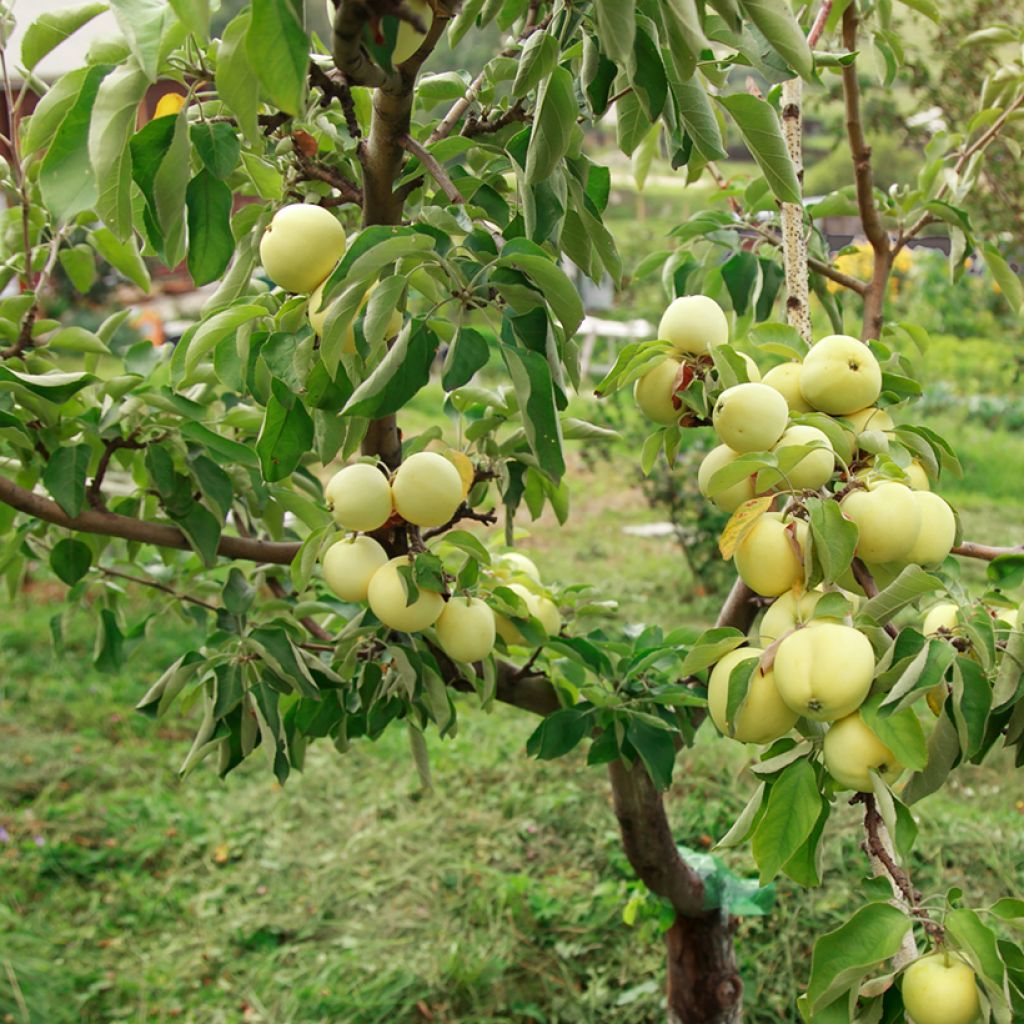

Pommier Transparente Blanche - Pomme des moissons - Saint Anne - Transparente Jaune
Organic Apple Tree Transparente Blanche - Malus domestica
Malus domestica Transparente Blanche
Apple, Orchard apple, Table apple, Cultivated apple
Special offer!
Receive a €20 voucher for any order over €90 (excluding delivery costs, credit notes, and plastic-free options)!
1- Add your favorite plants to your cart.
2- Once you have reached €90, confirm your order (you can even choose the delivery date!).
3- As soon as your order is shipped, you will receive an email containing your voucher code, valid for 3 months (90 days).
Your voucher is unique and can only be used once, for any order with a minimum value of €20, excluding delivery costs.
Can be combined with other current offers, non-divisible and non-refundable.
Home or relay delivery (depending on size and destination)
Schedule delivery date,
and select date in basket
This plant carries a 6 months recovery warranty
More information
We guarantee the quality of our plants for a full growing cycle, and will replace at our expense any plant that fails to recover under normal climatic and planting conditions.
Description
Malus domestica 'Transparente Blanche' is an ancient variety that produces fruits from the beginning of summer. It produces a round, slightly conical apple, of medium to large size, with a thin and smooth skin, uniformly white-green, punctuated with grey and green at the top. Its white flesh is fine, crunchy, very tender, juicy, very sweet and slightly acidic. From early July, the fruits can be consumed immediately after harvest. With a very short shelf life and sensitivity to impact, they are best enjoyed as they ripen. A refreshing and invigorating apple, delicious to eat straight from the tree or cooked in compotes or jellies. It is a self-fertile variety (diploid) that is fairly productive, but the presence of other apple varieties nearby will improve its yield.
Malus domestica, also known as Malus communis or Malus pumila, is commonly called the Common or Domestic Apple. It belongs to the Rosaceae family. Present in France and Europe since ancient times, it is a fruit tree native to the forests of Central Asia. It has excellent hardiness and is probably the most cultivated fruit tree in Northern Europe. There are approximately 20,000 varieties, including around 10,000 of American origin, 2,000 of English origin, and 2,000 of Chinese origin. The 'Transparente Blanche' Apple is known by many synonyms: Harvest Apple, De Revel, Summer Ice, Saint-Anne, Saint-Jean, Sultan, Transparente Jaune, Weisser Klarapfel. This variety originates from Riga, the capital of Latvia, located on the Baltic Sea, from where it was likely brought back by soldiers during the Russian campaign in 1812. In 1852, Mr. André Leroy, a renowned pomologist and nurseryman in Angers, introduced it to France.
The 'Transparente Blanche' Apple is a spreading tree that can reach approximately 5 metres (16 feet) in height and 4 metres (13 feet) in width when fully grown. Its habit is well suited for low or high standards and espalier forms. Its foliage consists of large, ovate leaves, brownish-green on top and whitish-green on the underside, deeply toothed. The white flowering occurs around late March, early April, which makes it susceptible to spring frosts. The flowers are destroyed by frost at temperatures ranging from -2 to -3°C (28.4 to 26.6°F). It is a variety suitable for cultivation in regions with relatively early frosts. The Apple tree is a hardy plant that can withstand temperatures around -25°C (-13°F) and is suitable for cultivation in all regions. Its abundant and remarkably decorative spring flowering is particularly attractive to bees and butterflies and provides ample nectar. It is a partially self-fertile variety (diploid) that is fairly productive, but the presence of other apple varieties nearby will improve pollination and therefore increase production. Varieties such as 'Golden Delicious', 'Granny Smith', 'Reine des Reinettes', 'Tranparente de Croncels', 'Winter Banana', or any other early-flowering variety are suitable for cross-pollination.
The 'Transparente Blanche' Apple is a moderately vigorous variety, with a quick fruiting habit, providing regular and early yields, and is susceptible to scab, canker, brown rot, and red spider mites.
One of the first summer apples to be enjoyed both raw and cooked, in very fine compotes, jellies, or pastries. Easy to consume, the apple provides a great feeling of satiety. Rich in carbohydrates and fructose, it is invigorating, energizing, and rehydrating. Its content of vitamins A, B, C, and E, minerals, antioxidants, and fibre makes the apple a health asset. It is preferable to harvest and consume this variety when the fruits reach maturity, as they quickly become mealy. Sensitive to handling, it is not commonly sold in stores.
Very popular due to its fruits, the apple tree finds its rightful place in the garden, delighting both young and old. Among a wide range of apple trees, it is easy to find the variety that best suits one's preferences.
Report an error about the product description
Organic Apple Tree Transparente Blanche - Malus domestica in pictures
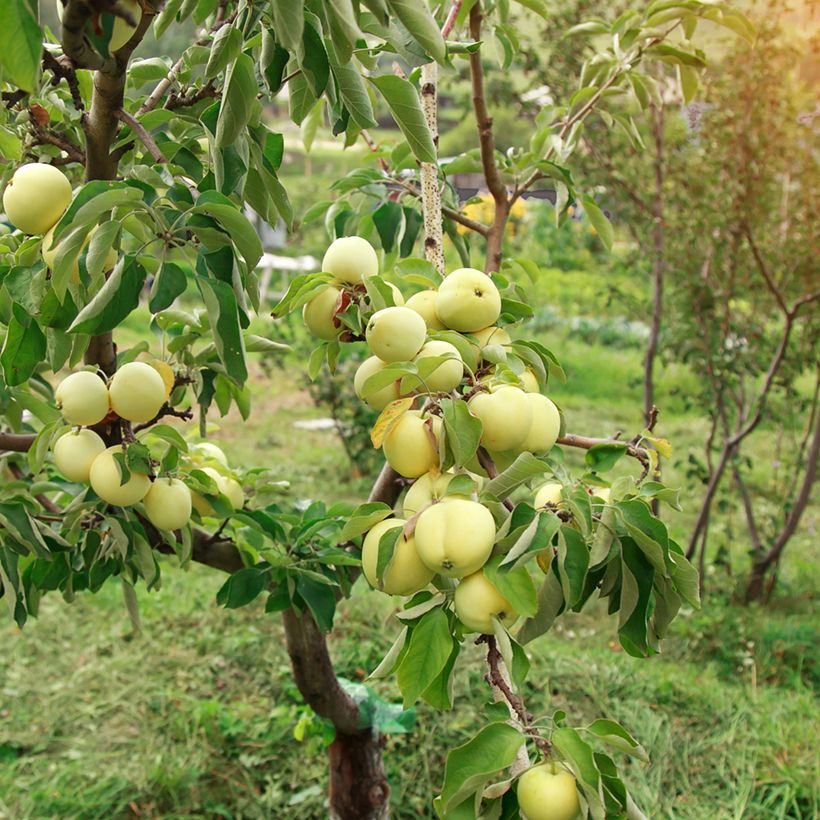

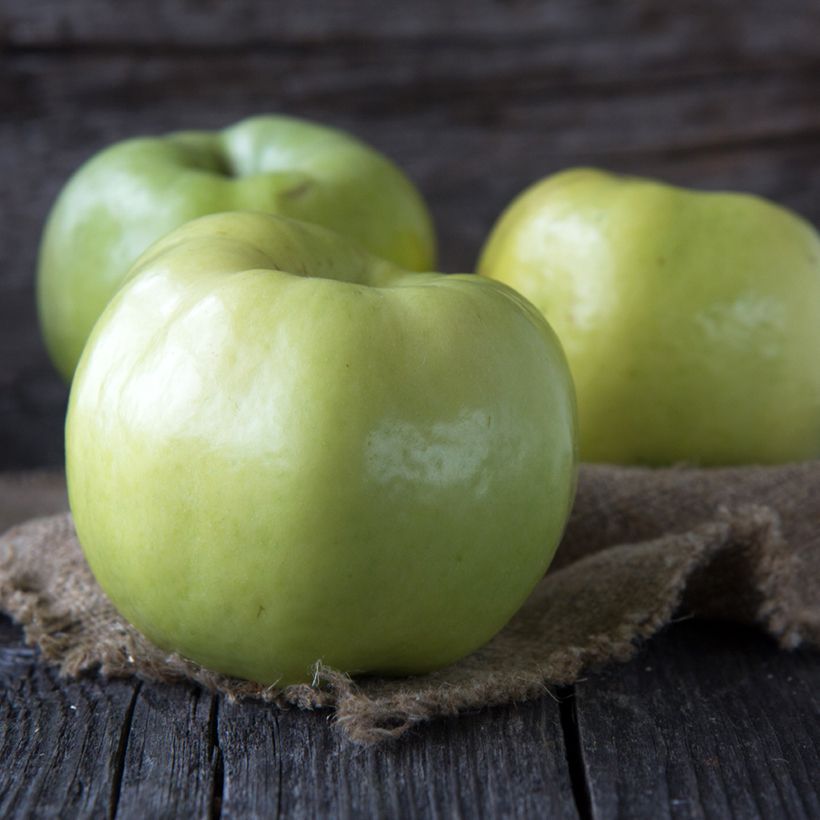

Plant habit
Fruit
Flowering
Foliage
Botanical data
Malus
domestica
Transparente Blanche
Rosaceae
Apple, Orchard apple, Table apple, Cultivated apple
Cultivar or hybrid
Other Apple trees
View all →Planting and care
Choose a well sunny spot for your 'Transparente Blanche' Apple Tree, the soil can be slightly chalky or acidic, but without excess. Dig a large planting hole at least 3 times the volume of the root ball. Simultaneously add organic matter (potting soil, compost...) and a base fertilizer like crushed horn. Do not bury the graft collar. Stake if necessary. For apple trees planted in isolation and in open ground, it can be interesting to stake them by installing a bracing system: plant 3 stakes in a triangle 50cm (20in) around the trunk, connect them together with pieces of wood. Protect the bark with a piece of rubber for example and attach the stakes to the trunk with metal wires. Water abundantly, even in winter, even if it rains. Fruit trees are ideally planted between October and March, outside of the freezing period. Container-grown plants can be planted year-round, except during periods of high heat or frost.
In winter, at the base of the tree and slightly incorporated into the surface of the soil, you can add a small handful of wood ash, rich in potash, this will improve fruiting. The Apple Tree can be subject to various diseases and pests. In order to limit the risks, space the trees sufficiently, install multi-species hedges, nest boxes or insect hotels, to attract beneficial insects. In summary: prioritize diversity. The main diseases of the Apple Tree are scab (brown spots on the leaves), brown rot (wilting of the flowers and rotting of the fruits on the tree) and powdery mildew (white coating on the leaves). For these three cases, preventive action is preferred by spraying a horsetail decoction, as a last resort and in case of severe attacks, as a curative action, you can apply a treatment based on Bordeaux mixture. As for pests, the codling moth (or apple worm) is a small caterpillar, resulting from the laying of a butterfly, which causes galleries inside the fruit. To remedy this, it is preferable to act preventively by promoting the installation of tits and bats, through the installation of nest boxes. In case of aphid attack, spray a solution based on black soap.
During the harvest in September, only keep the picked fruits. For good preservation, it is advisable to place the apple with its stem downwards, on racks or in crates. Choose a preferably completely dark, dry and cool place, but frost-free.
Planting period
Intended location
Care
This item has not been reviewed yet - be the first to leave a review about it.
Similar products
Haven't found what you were looking for?
Hardiness is the lowest winter temperature a plant can endure without suffering serious damage or even dying. However, hardiness is affected by location (a sheltered area, such as a patio), protection (winter cover) and soil type (hardiness is improved by well-drained soil).

Photo Sharing Terms & Conditions
In order to encourage gardeners to interact and share their experiences, Promesse de fleurs offers various media enabling content to be uploaded onto its Site - in particular via the ‘Photo sharing’ module.
The User agrees to refrain from:
- Posting any content that is illegal, prejudicial, insulting, racist, inciteful to hatred, revisionist, contrary to public decency, that infringes on privacy or on the privacy rights of third parties, in particular the publicity rights of persons and goods, intellectual property rights, or the right to privacy.
- Submitting content on behalf of a third party;
- Impersonate the identity of a third party and/or publish any personal information about a third party;
In general, the User undertakes to refrain from any unethical behaviour.
All Content (in particular text, comments, files, images, photos, videos, creative works, etc.), which may be subject to property or intellectual property rights, image or other private rights, shall remain the property of the User, subject to the limited rights granted by the terms of the licence granted by Promesse de fleurs as stated below. Users are at liberty to publish or not to publish such Content on the Site, notably via the ‘Photo Sharing’ facility, and accept that this Content shall be made public and freely accessible, notably on the Internet.
Users further acknowledge, undertake to have ,and guarantee that they hold all necessary rights and permissions to publish such material on the Site, in particular with regard to the legislation in force pertaining to any privacy, property, intellectual property, image, or contractual rights, or rights of any other nature. By publishing such Content on the Site, Users acknowledge accepting full liability as publishers of the Content within the meaning of the law, and grant Promesse de fleurs, free of charge, an inclusive, worldwide licence for the said Content for the entire duration of its publication, including all reproduction, representation, up/downloading, displaying, performing, transmission, and storage rights.
Users also grant permission for their name to be linked to the Content and accept that this link may not always be made available.
By engaging in posting material, Users consent to their Content becoming automatically accessible on the Internet, in particular on other sites and/or blogs and/or web pages of the Promesse de fleurs site, including in particular social pages and the Promesse de fleurs catalogue.
Users may secure the removal of entrusted content free of charge by issuing a simple request via our contact form.
The flowering period indicated on our website applies to countries and regions located in USDA zone 8 (France, the United Kingdom, Ireland, the Netherlands, etc.)
It will vary according to where you live:
- In zones 9 to 10 (Italy, Spain, Greece, etc.), flowering will occur about 2 to 4 weeks earlier.
- In zones 6 to 7 (Germany, Poland, Slovenia, and lower mountainous regions), flowering will be delayed by 2 to 3 weeks.
- In zone 5 (Central Europe, Scandinavia), blooming will be delayed by 3 to 5 weeks.
In temperate climates, pruning of spring-flowering shrubs (forsythia, spireas, etc.) should be done just after flowering.
Pruning of summer-flowering shrubs (Indian Lilac, Perovskia, etc.) can be done in winter or spring.
In cold regions as well as with frost-sensitive plants, avoid pruning too early when severe frosts may still occur.
The planting period indicated on our website applies to countries and regions located in USDA zone 8 (France, United Kingdom, Ireland, Netherlands).
It will vary according to where you live:
- In Mediterranean zones (Marseille, Madrid, Milan, etc.), autumn and winter are the best planting periods.
- In continental zones (Strasbourg, Munich, Vienna, etc.), delay planting by 2 to 3 weeks in spring and bring it forward by 2 to 4 weeks in autumn.
- In mountainous regions (the Alps, Pyrenees, Carpathians, etc.), it is best to plant in late spring (May-June) or late summer (August-September).
The harvesting period indicated on our website applies to countries and regions in USDA zone 8 (France, England, Ireland, the Netherlands).
In colder areas (Scandinavia, Poland, Austria...) fruit and vegetable harvests are likely to be delayed by 3-4 weeks.
In warmer areas (Italy, Spain, Greece, etc.), harvesting will probably take place earlier, depending on weather conditions.
The sowing periods indicated on our website apply to countries and regions within USDA Zone 8 (France, UK, Ireland, Netherlands).
In colder areas (Scandinavia, Poland, Austria...), delay any outdoor sowing by 3-4 weeks, or sow under glass.
In warmer climes (Italy, Spain, Greece, etc.), bring outdoor sowing forward by a few weeks.






























